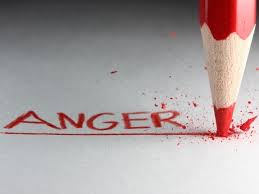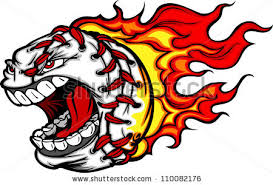Like all emotions anger has a purpose. In terms of evolution, anger makes sense. When we feel angry it is because we are threatened or perceive that somehow things aren’t working out to our advantage. Think of anger as the active version of fear. Fear posing as anger can drive us to act. Without anger, fear can keep us paralyzed, and in terms of survival, paralysis is deadly. Of course, for the most part, we are not struggling minute to minute to survive as our ancestors did, which means that anger is not serving it’s original purpose. However, it still lets us know when something feels wrong. In that way, it can illuminate our needs, desires and weaknesses. When we feel angry, instead of simply feeling, we can question, why am I angry?
 Krodh or anger is considered to be one of the five thieves mentioned in gurbani (kaam (lust), krodh (anger), lobh (greed, moh (attachment), hankar (ego) that robs us of our inner peace leaving us unhappy and dissatisfied. Anger does not just happen. We get angry because we want to have our own way.
Krodh or anger is considered to be one of the five thieves mentioned in gurbani (kaam (lust), krodh (anger), lobh (greed, moh (attachment), hankar (ego) that robs us of our inner peace leaving us unhappy and dissatisfied. Anger does not just happen. We get angry because we want to have our own way.
It helps to understand that anger itself is ego and that anger has two parts. One is discord (the visible part) and the other is restlessness (invisible part). Discord is apparent to others (loud voice, frown, red eyes etc) and restlessness remains within, unseen by others. It is the discord that one is able to overcome. Here is the dichotomy. As one suppresses one part of anger, the other will increase. When a person claims to have conquered anger, his/her pride increases. In reality, anger cannot be completely conquered. Perhaps one can say that he/she has conquered the visible anger, the discord, but the restlessness which one harbours still remains. By repeatedly thinking about what caused the anger and then filing it within us to retrieve later is even more harmful. These thoughts are venomous which are often the cause of diseases (dis – ease) such as arthritis, blood pressure etc. 
Suppressing anger is self destructive, as the negative energy redirects directly into our body. One should not hold negative feelings for anyone. Guru ji guides us in the following manner:

If possible try to replace the hostility with loving thoughts.
Before we can even attempt to control anger we have to understand its origins and what causes it? Very often the cause for our anger whether it is a person, a situation or a thing is merely an instrument, which is mirroring in us the very things, we need to be working on. The cause has come to us as a teacher and is there for us to learn a lesson. If we examine the situation intensely and honestly the cause can almost always be determined within us. It is usually a hurt ego causing us to put up a defensive mechanism. If after examining the situation we chose to NOT get offended, in other words choose to understand and recognize the teacher, the anger begins to lose it’s control over us. Making judgments and having expectations from someone or seeing faults in the other person because they do not measure up to our standards are other common causes for anger. As soon as one begins to recognize the roots of the anger, the anger snake loses its veno m. It is vicious, this venom and it spreads instantly, before one has even had a chance to examine one’s thoughts. We need practice. By constantly practicing reflecting on the reasons for our anger we slowly begin to think before we act (that is – react - get angry).
m. It is vicious, this venom and it spreads instantly, before one has even had a chance to examine one’s thoughts. We need practice. By constantly practicing reflecting on the reasons for our anger we slowly begin to think before we act (that is – react - get angry).
One very important point to remember is this. We are never angry because of what another person did. a thing or a certain situation. We think we are but the cause is usually US. Look within, never without. It is not about someone else or something else. It is about US.
This is hard to swallow.
It is easier to point a finger at someone else or some thing but unfortunately they were just the teachers and they will keep on returning until you learn the lesson. The sooner we learn the lesson the better. Have you ever noticed how with some people, even if they were to do wrong over and over again, they do not make us angry, and with others, no matter what good they do, we still get angry with them. Surely there must be a reason behind this?
 However, sometimes anger may be justified; when it has a different motive behind it is considered acceptable. For example, when parents get angry with their children or when a guru becomes angry with his/her disciples. The motive here is to help the other.
However, sometimes anger may be justified; when it has a different motive behind it is considered acceptable. For example, when parents get angry with their children or when a guru becomes angry with his/her disciples. The motive here is to help the other.
The true key is awareness of one’s inner self and learning to deal with anger means to develop positive habits to release internal conflict before it reaches the anger state.
Taoism teaches peace is the true warrior’s path.The sword while an option is never used with anger or you have lost from the start.
Buddhism also teaches that anger is never justified. Our practice is to cultivate kindness towards all beings, which includes everyone – even the guy who just cut you off at the exit ramp, the co-worker who takes credit for your ideas, and even someone close and trusted who betrays you.
It’s hard not to act, to remain still and silent while our emotions are screaming at us. Anger fills us with edgy energy and makes us want to do something. Some people counsel pounding our fists into pillows or to scream at the walls to “work out” our anger. However Thich Nhat Hanh, a prominent spiritual teacher disagrees:
“When you express your anger you think that you are getting anger out of your system, but that’s not true,” he said. “When you express your anger, either verbally or with physical violence, you are feeding the seed of anger, and it becomes stronger in you.”
Learn to embrace your anger with patience and compassion for all beings, including yourself. This can be achieved by meditation - Sit still with the heat and tension of anger. Quiet the internal chatter of other-blame and self-blame. Acknowledge the anger and enter into it entirely.
Only understanding and compassion can neutralize anger , but compassion takes courage. Sometimes we confuse aggression with strength and non-action with weakness. Buddhism teaches that just the opposite is true. Giving in to the impulses of anger, allowing anger to hook us and jerk us around, is weakness. On the other hand, it takes strength to acknowledge the fear and selfishness in which our anger usually is rooted. It also takes discipline to meditate in the flames of anger.

Despite our understanding of the harmful nature of anger we will get angry again. It is part of the human condition. However, If you are patient and courageous enough, you can use your anger to understand yourself better. Once you begin to understand yourself, you’ll begin to understand others too, and the intensity and frequency of the anger they provoke in you will be lessened.
Use your emotions as guideposts to help you remember where you’ve been, where you are going, and why. In this way, even the ugliest among them can be a gift.

With Much Nanak Love
RA






